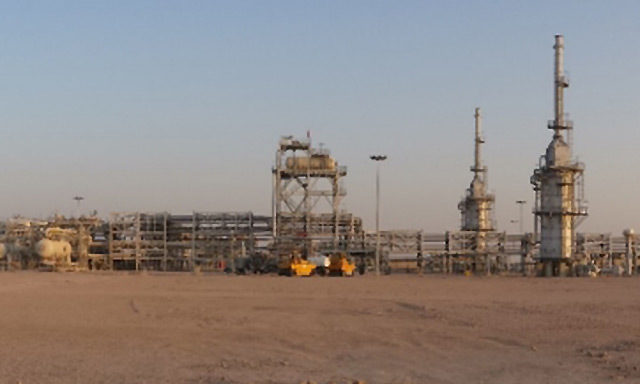
Iraq will sell its Basrah Light crude to Asia at the biggest discount since January 2009 as it follows Saudi Arabia and Iran in cutting prices amid a slump in Brent futures to the lowest in almost four years.
Iraq, the second-biggest producer in the Organization of Petroleum Exporting Countries, trimmed the price differentials for supplies to Asia and Europe for November, the country’s State Oil Marketing Co., known as SOMO, said today. Futures slid as much as 3.6% in London to the lowest intraday level since December 2010, and West Texas Intermediate lost 1.8% after tumbling into a bear market last week.
The world’s two most-traded oil futures are collapsing as demand growth slows and output expands in the US, Russia and other nations. OPEC’s biggest producers are responding by cutting prices, sparking speculation they are ready to compete for market share. Iran last week said it will sell oil to Asia in November at the biggest discount in almost six years, matching cuts by Saudi Arabia.
“What’s happening in the market is good for big Middle- East customers like us,” said B. Ashok, the chairman of Indian Oil Corp., the country’s largest state-run refiner that counts Iraq as its biggest supplier. “We have to wait and see where prices go in coming months. Usually, they tend to rise a bit in winter.”
Brent for November settlement slid as much as $3.21 to $87 a barrel on the London-based ICE Futures Europe exchange and was at $88.98 at 2:36 p.m. Singapore time. The contract closed at $90.05 on Oct. 9, the lowest since June 2012. Prices have decreased almost 20 percent this year.
WTI for November delivery was at $84.69 a barrel in electronic trading on the New York Mercantile Exchange, down 1.3%. The contract settled at $85.77 on Oct. 9, the lowest since December 2012. The US benchmark crude was at a discount of $4.28 to Brent. It closed at $4.39 on Oct. 10.
Prices slumped after OPEC increased oil supply by the most in almost three years last month. While Societe Generale SA estimates the group needs to reduce output by about 1 million barrels a day, analysts were split last week on whether it will announce a cut at its next gathering in November.
Venezuela will seek an extraordinary OPEC meeting to address falling prices, the nation’s foreign ministry said in a Twitter post on Oct. 10. Kuwaiti Oil Minister Ali Al-Omair said many countries considered the group’s current output quota to be “reasonable and fair” and the country hasn’t received an invitation to any emergency meeting, state news agency Kuna reported yesterday.
“Although it looks like prices have touched their lowest level, they’ll fall a bit more before they are hit by an actual move by OPEC,” Will Yun, a commodities analyst at Hyundai Futures Co., said by phone in Seoul. “Countries cutting their official selling prices is one of the factors that’s been driving the prices down in the short term.”
Middle East producers including Iran, Iraq and Kuwait almost always follow Saudi Arabia’s lead when deciding whether to raise or lower export prices. The scale of November’s cuts prompted speculation some members are ready for a price war.
Iraq set its November Basrah Light crude at $3.15 below the average of Oman and Dubai prices for buyers in Asia, SOMO said in an e-mailed statement. That’s the biggest discount since January 2009 and compares with $2.50 for October. It will sell the crude to Europe at $5.40 below Dated Brent, from $4.75 in October. Prices for U.S. buyers were unchanged.
Kirkuk crude will be sold to Europe at a $3.95 discount to Dated Brent, while prices for US buyers will remain at a $2 premium for a fifth month, SOMO said.
State-run National Iranian Oil Co. cut its selling prices for buyers in Asia, two people with knowledge of the decision said Oct. 9. A week before, Saudi Arabia, the world’s largest oil exporter, reduced the price of Arab Light crude for Asia to the lowest since December 2008.
US oil output increased to 8.88 million barrels a day in the week ended Oct. 3, the most since March 1986, according to the Energy Information Administration. Russia boosted output to 10.61 million barrels a day last month, according to preliminary data from CDU-TEK, part of the Energy Ministry. The figure, including crude and condensates, is within 0.3 percent of the post-Soviet record in January.
Money managers reduced bets on rising oil prices by the most in five weeks. Speculators lowered net-long positions in WTI by 4.8% in the seven days ended Oct. 7, according to US Commodity Futures Trading Commission data. Short positions climbed 8 percent, the most in almost a month.
Recommended for you
